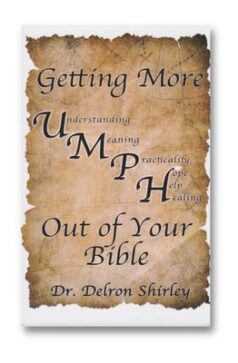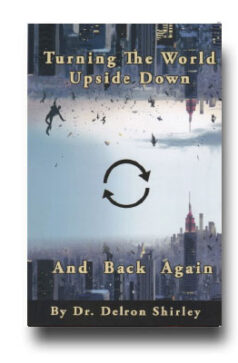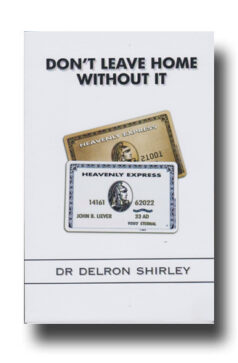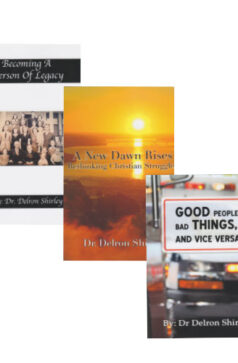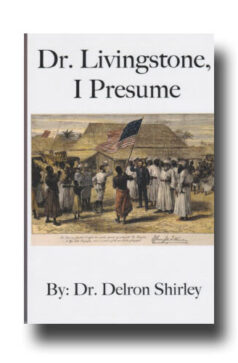There were present at that season some that told him of the Galilaeans, whose blood Pilate had mingled with their sacrifices. And Jesus answering said unto them, Suppose ye that these Galilaeans were sinners above all the Galilaeans, because they suffered such things? I tell you, Nay: but, except ye repent, ye shall all likewise perish. Or those eighteen, upon whom the tower in Siloam fell, and slew them, think ye that they were sinners above all men that dwelt in Jerusalem? I tell you, Nay: but, except ye repent, ye shall all likewise perish. (Luke 13:1-5)
In this short passage, Jesus addressed the issues that we have been dealing with for the past few chapters – people who suffer at the hands of others and those who suffer from natural disasters. Additionally, He suggested that it was in error to assume that these calamities had come upon them because of their sinfulness or “bad karma.” However, Jesus threw us a “curveball” when He said – and even emphasized – that we must repent or perish.
Perhaps we may have been misinterpreting what He meant because we have not taken a serious look at the “trees” while trying to get an overview of the “forest.” By that statement, I mean that perhaps we have taken His whole statement in one bite rather than biting off one word at the time to chew on. Therefore, let’s take a couple paragraphs to look at the individual words in His admonition.
Let’s start with the definition of “repent.” Although it does carry the meaning of turning from sin and dedicating oneself to amending one’s life and the emotion of feeling regret or contrition; “repent” also means to change one’s mind. This is exactly what happened with Naomi – she changed her mind from focusing on all she had lost and blaming God for the tragedies in her life to thinking that God was actually at work and had a plan to bring restoration to her life.
The definition of “perish” means to destroy or ruin, cause to cease to exist, deteriorate, or spoil. However, even when we have the right meaning, it may be possible that we have attributed that quality to the wrong source. I would assume that I’m not the only one who spent most of my life reading this statement to mean, “You need to feel regret and contrition so that you will turn from your sin and dedicate yourself to correcting your life; otherwise, God is going to judge you by destroying you, ruining you, causing you to cease to exist, deteriorating you, and spoiling you – and ultimately sending you to hell.”
Let’s consider an alternate way of reading this passage: When you suffer bad things at the hands of evil men or natural disasters, take time to change the way you think about what is happening to you. Rather than getting bitter, let God work inside of you to make you better. If you don’t, the persecution from the outside and the bitterness from the inside will work together to totally destroy you – physically, emotionally, and spiritually.
If we read this directive from Jesus with this new approach to its meaning, we become what I like to call, “Martini Christians.” Let me give you a minute to start breathing again, and I’ll explain that I do not have any personal experience with martinis. All I know about the subject is one little statement that I picked up from a spy movie in which the secret agent used the ice cube in a drink to hide his listening device. In order to make sure that the instrument was not damaged, he instructed the bartender that the drink be stirred, not shaken.
There are a lot of things that can shake our worlds. Lucifer’s fall shook the nations. (Isaiah 14:16; Ezekiel 26:15, 31:16) On the other hand, God shakes the heaven and the earth when He shows up. The scriptures confirm this point at least twenty times. (II Samuel 22:8; Job 9:6; Psalm 18:7, 18:7, 29:8 (two times), 46:3, 60:2, 68:8, 77:18; Isaiah 2:19, 2:21, 13:13, 24:18; Joel 3:16; Haggai 2:6, 2:21; Matthew 24:29; Mark 13:25; Hebrews 12:26) He shook the jail where Paul and Silas were incarcerated (Acts 16:26) and the house in which the disciples prayed (Acts 4:31). In addition, there are shakings that are still to come when God will shake nations (Haggai 2:7) and the very powers or stars of heaven (Luke 21:26, Revelation 6:13).
However, the general admonition in the scripture is that we are to come to a solid position in our faith so that nothing shakes us, “That ye be not soon shaken in mind, or be troubled, neither by spirit, nor by word, nor by letter as from us, as that the day of Christ is at hand.” (II Thessalonians 2:2) Jesus likened those with a solid faith to a house that is built on a solid foundation that could not be shaken, “He is like a man which built an house, and digged deep, and laid the foundation on a rock: and when the flood arose, the stream beat vehemently upon that house, and could not shake it: for it was founded upon a rock.” (Luke 6:48) Paul testified that his confidence in the Lord was immovable, “But none of these things move me, neither count I my life dear unto myself, so that I might finish my course with joy, and the ministry, which I have received of the Lord Jesus, to testify the gospel of the grace of God,” (Acts 20:24) and David determined that he would ensure a similar unshakable relationship with the Lord, “I keep my eyes always is on the Lord. With him at my right hand, I will not be shaken…Truly he is my rock and my salvation; he is my fortress, I will not be shaken.” (Psalm 16:8, Psalm 62:6 – NIV)
The scriptures refer to stirrings that can come in our lives in both negative and positive ways. Bad emotions can stir us up: hatred (Proverbs 10:12), grievous words (Proverbs 15:1), wrath (Proverbs 15:18), pride (Proverbs 28:25), and anger (Proverbs 29:22). In the Old Testament we find the example of how Jezebel stirred up Ahab to do wickedness (I Kings 21:25) and in the New Testament we see how evil men stirred up hostilities against the early Christians (Acts 6:12, 12:18, 13:50, 14:2, 17:13, 19:23, 21:27). On the other hand, the scriptures abound with examples of how stirring can be a good thing. The Lord stirred up His people to build the tabernacle. (Exodus 35:21, 35:26, 36:2) Centuries later, He stirred up Cyrus to fulfill the prophecy of returning the people of Israel to the land so they could rebuild the temple (II Chronicles 36:22, Ezra 1:1) and then stirred up Lord the people to do the work in the temple (Haggai 1:14). In our own lives, we can be stirred up in our pure minds by the Word of God (II Peter 3:1), and we initiate our own stirring by acting in faith (Job 17:8; Psalm 35:23, 80:2; II Timothy 1:6; II Peter 1:13).
The bottom line is that we have no way of controlling what might happen in our lives; however, we do have control over how we are going to allow those things to affect us. We can be shaken, or we can be stirred. The basic difference is whether our lives are anchored on the solid foundation of who we are in Christ and who He is in us. Are we mature enough in Him and is He big enough in us so that we can pray for those who inflict injury upon us rather than to pray about the circumstances that find ourselves in? If not, we must repent – change the way we think – or else our circumstances will cause us to perish.



